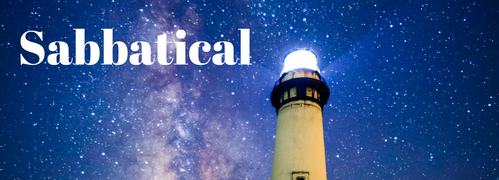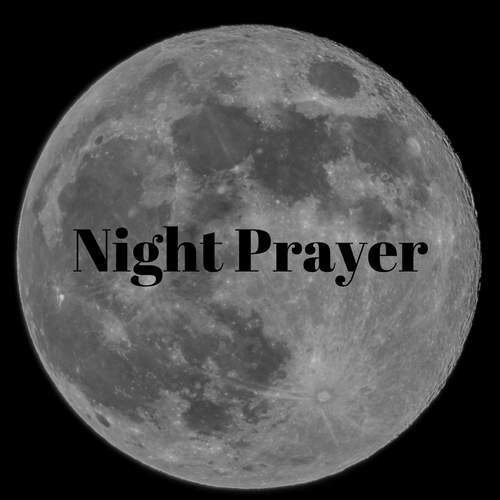

Daily Primer — June 18, Travel Day
Each day you will be given:
A Florilegium entry
A Daily Prayer
and a Night Prayer.
A Florilegium entry
A Daily Prayer
and a Night Prayer.

YET we must not deal in too negative a fashion even with the “external self.” This self is not by nature evil, and the fact that it is unsubstantial is not to be imputed to it as some kind of crime. It is afflicted with metaphysical poverty: but all that is poor deserves mercy. So too our outward self: as long as it does not isolate itself in a lie, it is blessed by the mercy and the love of Christ. Appearances are to be accepted for what they are. The accidents of a poor and transient existence have, nevertheless, an ineffable value. They can be transparent media in which we apprehend the presence of God in the world. It is possible to speak of the exterior self as a mask: to do so is not necessarily to reprove it. The mask that each man wears may well be a disguise not only for that man’s inner self but for God, wandering as a pilgrim and exile in His own creation.
And indeed, if Christ became Man, it is because He wanted to be any man and every man. If we believe in the Incarnation of the Son of God, there should be no one on earth in whom we are not prepared to see, in mystery, the presence of Christ.
WHAT is serious to men is often very trivial in the sight of God. What in God might appear to us as “play” is perhaps what He Himself takes most seriously. At any rate the Lord plays and diverts Himself in the garden of His creation, and if we could let go of our own obsession with what we think is the meaning of it all, we might be able to hear His call and follow Him in His mysterious, cosmic dance. We do not have to go very far to catch echoes of that game, and of that dancing. When we are alone on a starlit night; when by chance we see the migrating birds in autumn descending on a grove of junipers to rest and eat; when we see children in a moment when they are really children; when we know love in our own hearts; or when, like the Japanese poet Bashō we hear an old frog land in a quiet pond with a solitary splash—at such times the awakening, the turning inside out of all values, the “newness,” the emptiness and the purity of vision that make themselves evident, provide a glimpse of the cosmic dance.
For the world and time are the dance of the Lord in emptiness. The silence of the spheres is the music of a wedding feast. The more we persist in misunderstanding the phenomena of life, the more we analyze them out into strange finalities and complex purposes of our own, the more we involve ourselves in sadness, absurdity and despair. But it does not matter much, because no despair of ours can alter the reality of things, or stain the joy of the cosmic dance which is always there. Indeed, we are in the midst of it, and it is in the midst of us, for it beats in our very blood, whether we want it to or not.
Yet the fact remains that we are invited to forget ourselves on purpose, cast our awful solemnity to the winds and join in the general dance.”
And indeed, if Christ became Man, it is because He wanted to be any man and every man. If we believe in the Incarnation of the Son of God, there should be no one on earth in whom we are not prepared to see, in mystery, the presence of Christ.
WHAT is serious to men is often very trivial in the sight of God. What in God might appear to us as “play” is perhaps what He Himself takes most seriously. At any rate the Lord plays and diverts Himself in the garden of His creation, and if we could let go of our own obsession with what we think is the meaning of it all, we might be able to hear His call and follow Him in His mysterious, cosmic dance. We do not have to go very far to catch echoes of that game, and of that dancing. When we are alone on a starlit night; when by chance we see the migrating birds in autumn descending on a grove of junipers to rest and eat; when we see children in a moment when they are really children; when we know love in our own hearts; or when, like the Japanese poet Bashō we hear an old frog land in a quiet pond with a solitary splash—at such times the awakening, the turning inside out of all values, the “newness,” the emptiness and the purity of vision that make themselves evident, provide a glimpse of the cosmic dance.
For the world and time are the dance of the Lord in emptiness. The silence of the spheres is the music of a wedding feast. The more we persist in misunderstanding the phenomena of life, the more we analyze them out into strange finalities and complex purposes of our own, the more we involve ourselves in sadness, absurdity and despair. But it does not matter much, because no despair of ours can alter the reality of things, or stain the joy of the cosmic dance which is always there. Indeed, we are in the midst of it, and it is in the midst of us, for it beats in our very blood, whether we want it to or not.
Yet the fact remains that we are invited to forget ourselves on purpose, cast our awful solemnity to the winds and join in the general dance.”
Thomas Merton — New Seeds of Contemplation - 39 - The General Dance, pp. 295-297.
Florilegium is the Medieval Latin word for bouquet, or more literally flowers (flos, flor-) which are gathered (legere). The word florilegium was used to refer to a compilation of writings, often religious or philosophical. These florilegium are literary flowers—beautiful words/prayers/thoughts I have gathered. During my sabbatical they will give me something to ponder each day. — PHL.

Christ, our friend: you show the depth of your love and friendship by laying down your life for us. Help us, who are your friends, to grow in love for you and for our neighbors and for ourselves and even for our enemies, as you did. We ask this in the name of the one who, after all else has passed and has fallen away, remains our first, fast, last friend. Amen.
John 15:13-15. Liturgy of the Hours — PHL.

O God, who appointed the day for labor
and the night for rest:
Grant that we may rest in peace and quietness
during the coming night
so that tomorrow
we may go forth to our appointed labors.
Take us into your holy keeping, that no evil may befall us
nor any ill come near our home.
When at last our days are ended
and our work is finished,
grant that we may depart in your peace,
in the sure hope of that glorious kingdom
where there is day without night,
light without darkness,
and life without shadow of death forever;
through Jesus Christ,
the Light of the world. Amen.
and the night for rest:
Grant that we may rest in peace and quietness
during the coming night
so that tomorrow
we may go forth to our appointed labors.
Take us into your holy keeping, that no evil may befall us
nor any ill come near our home.
When at last our days are ended
and our work is finished,
grant that we may depart in your peace,
in the sure hope of that glorious kingdom
where there is day without night,
light without darkness,
and life without shadow of death forever;
through Jesus Christ,
the Light of the world. Amen.
The Book of Common Worship - Daily Prayer, p. 52.
